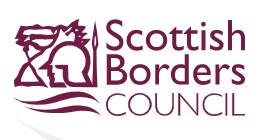Scottish Borders Council to propose 5% council tax increase

The Scottish Borders Council has revealed that a 5% Council Tax increase, which is half the rate of inflation, will be put forward as part of budget plans for 2023/24 later this month.
The local authority said that income generated from this will help manage a significant financial gap in council budgets caused by inflation and allows frontline services to be protected while delivering investment in key community priorities. For a Band D property, the impact of the increase will be £1.24 a week.
A cross-party group of councillors is currently finalising a single budget proposal, but a consensus has been reached about the Council Tax rise, which will be presented as part of the budget plan and voted on by all councillors at a meeting on 23 February.
Councillor Euan Jardine, leader of Scottish Borders Council, said: “A five per cent increase in Council Tax is just one of a number of steps which we as a cross-party budget group are proposing to bridge the growing financial gap between the money we have available and the money we need to maintain services and invest in key projects.
“The impact of this increase on a household in an average Band D property will be £1.24 a week. Around 40% of households do not pay the full rate, due to the variety of discounts and exemptions available depending on individuals’ circumstances.
“This has been very difficult for members across the political spectrum to agree on. We appreciate the pressure facing household budgets at this time, but importantly, we also recognise how many people rely on the Council for a variety of essential services. The proposed increase will help protect vital services such as education and social work and the care and support of vulnerable people and allow investment into key areas such as school and roads and projects which our residents have told us are really important to them.”
Councillor Mark Rowley, executive member for service delivery and transformation, including finance and budget oversight, added: “Nobody wants to be paying more for anything else right now, but those rising costs that are impacting on Borders households are also adversely affecting the council, from energy costs to vehicle fuel to food and the cost of delivering services.
“Council Tax only accounts for around a fifth of all our net income, four fifths comes from the Scottish Government. Currently inflation of over 10% is eroding our spending power, so a Council Tax increase of 5% only goes part of the way to closing the gap. The increase in the Borders is likely to be below some of the rises implemented up and down the country this April and we will continue to have one of the lowest Council Tax rates in mainland Scotland.
“It really is with a heavy heart that we are proposing this increase, but the reality is that without the additional income this will generate then we would have been left with the prospect of very damaging cuts to frontline services with no funding to support community priorities.
“The feedback residents provided to us, both through the summer Community Conversations events and the recent budget survey has been invaluable as we have developed the budget plans, and considered the impacts of increasing costs and investments.”
Further details of the budget proposals will be published next week, ahead of the meeting on 23 February.
A change allowed by the Scottish Government to how the debt associated with PPP contracts is accounted for may also support managing current and future financial pressures. For Scottish Borders Council, this relates to four secondary schools and the Jedburgh Grammar Campus.
Subject to agreement on Thursday 16 February, this would see the debt repayments accounted for over a 50-year period for each asset, rather than the current much shorter PPP contractual period. There would be no change to the total contract payments made, or when they are made, however the accounting change permitted under new statutory guidance would free up funding on the Council’s balance sheet for the next 25 years.
Of the balance released, £9 million would be used on a one-off basis to manage estimated financial gaps in the years 2023/24 to 2026/27. £3.5m would permanently contribute to closing the financial gap in 2023/24.
A further £20m is proposed to be allocated to a five-year change fund targeting new technology, service changes and cost reductions to ensure the council remains financially sustainable while maintaining service standards.







